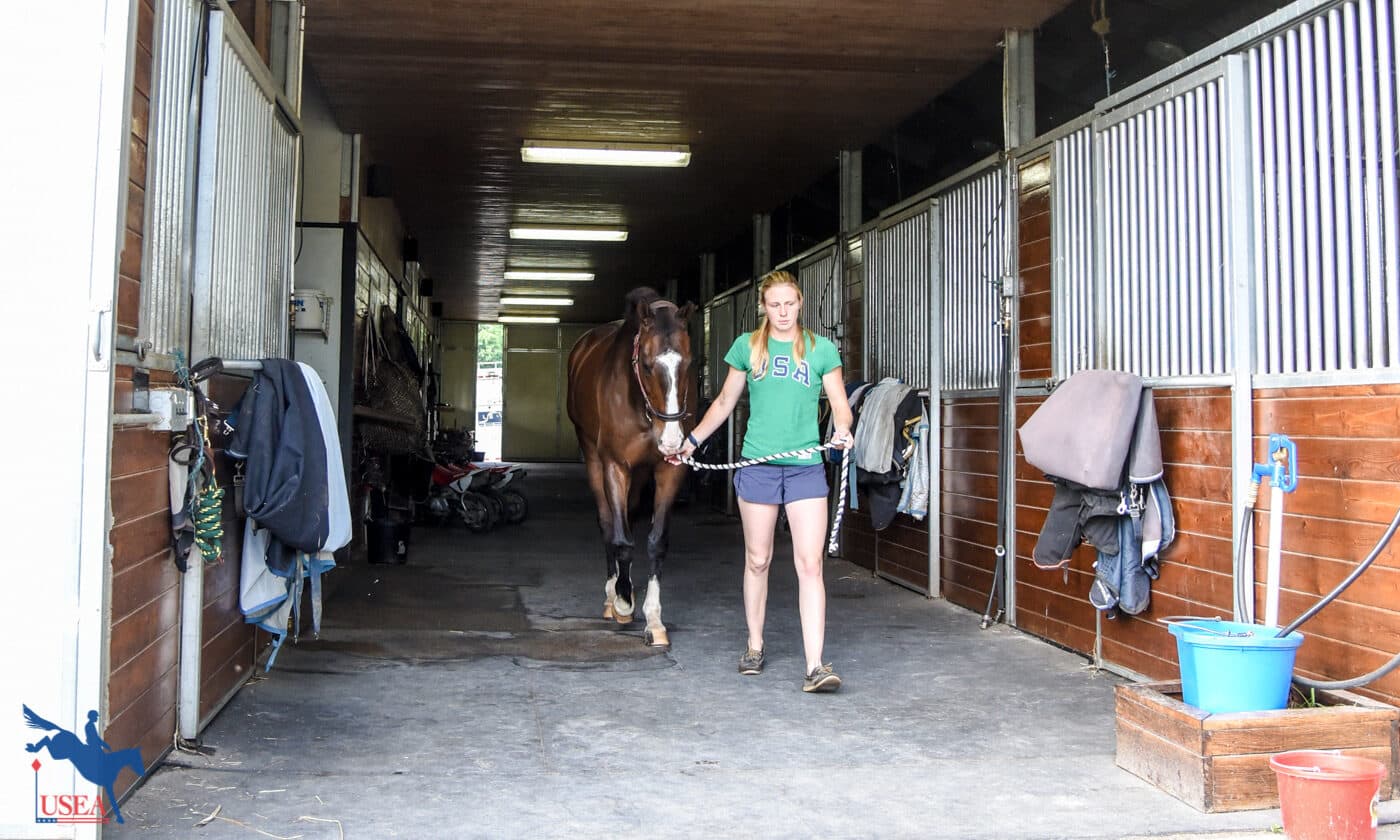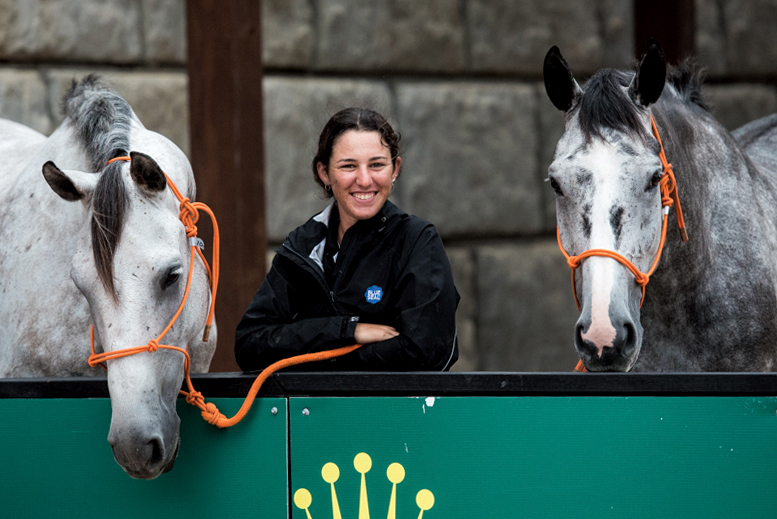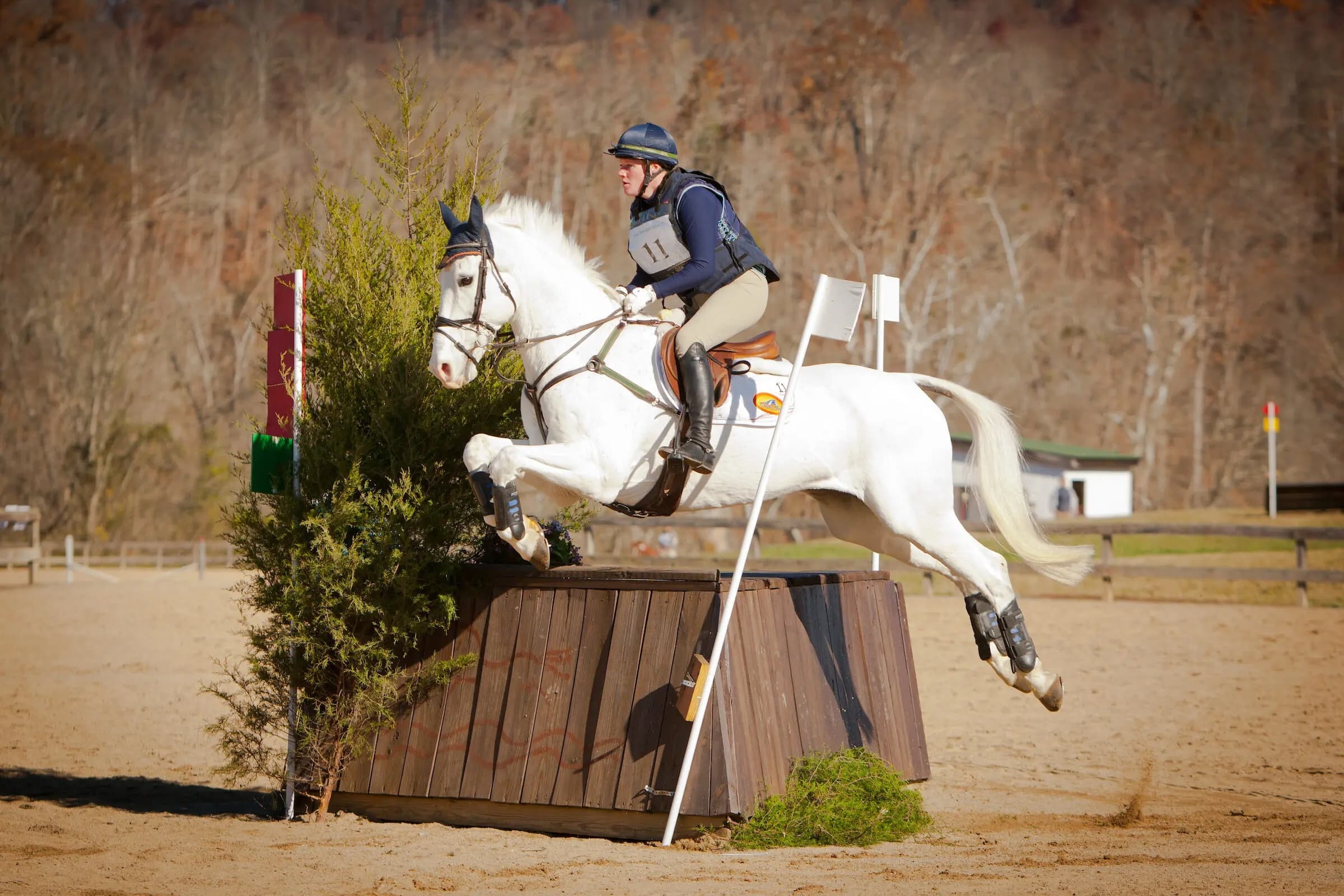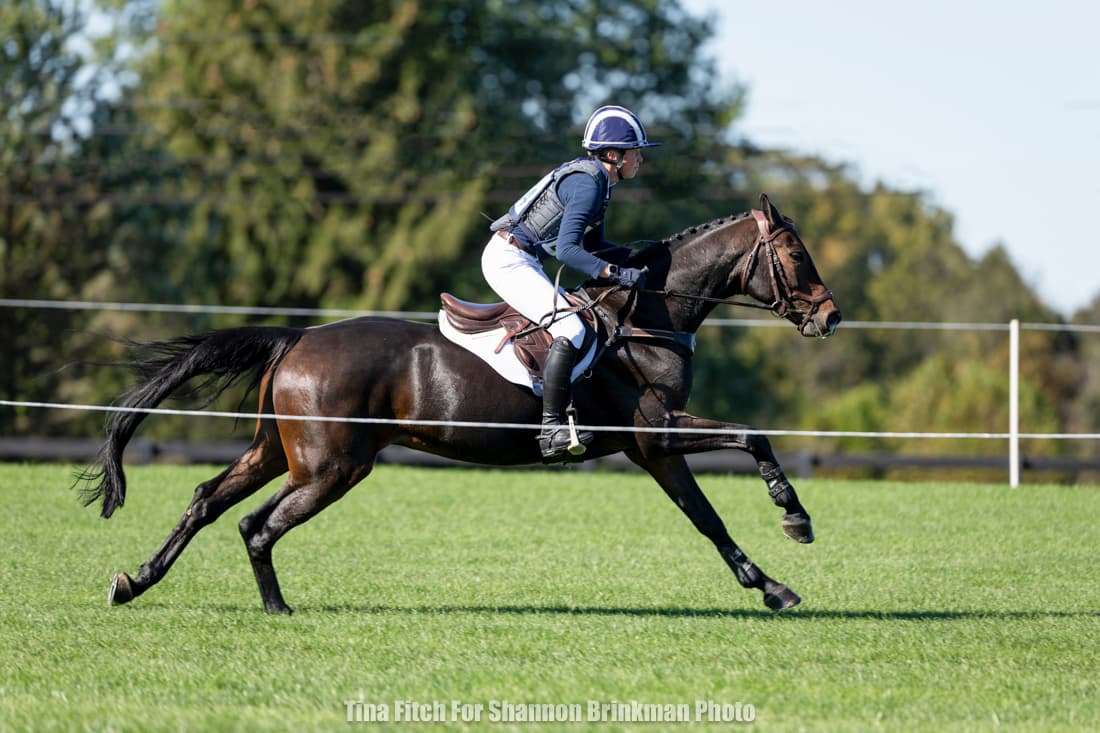Working Students: Tradition or Trouble?

This article originally appeared in the January/February 2019 issue of Eventing USA magazine.
Phillip, Boyd, Lynn, Sharon, Lauren – throw out a name of a top professional and you can almost guarantee at one point in their careers they were a working student. Being a working student is a rite of passage in eventing. How else will you learn what it is really like to be a professional in the sport? There is a lot to be said for classroom learning, but nothing compares to getting out and experiencing first-hand what it truly takes to succeed.
A working student can be defined in many different ways, but in the end it is most similarly compared to an internship or apprenticeship: A person learns the ins-and-outs of a business and in exchange for the education they work often long and hard hours for their teacher. Specific arrangements depend on the situation, but often include some combination of working students receiving lessons, training, room and board for themselves or their horses, or other compensation for their work – which itself can include everything from mucking stalls and barn work to grooming and riding other horses at the barn.
The Benefits of Being a Working Student
“Internships are commonplace in every business, and the better you are in your field, the more those spots are coveted,” said Sara Kozumplik Murphy in a recent conversation among USEA ICP Certified Instructors. “I don’t know of another equestrian professional that wasn‘t a working student at some stage. It’s part of your education and certainly a rite of passage on your way to the top.”
She explained that it isn’t just an education but “it’s the best way of stripping away the fluffy dreams you might have imagined as a kid, and making sure you really love working with horses. Ninety-nine percent of working students need that experience to learn that it’s not for them, and that horses should remain a hobby they love, not their job. I always recommend it to my student’s parents who are scared their kids won’t go to university. The reality of the life is usually the best way of ensuring they will! The few that are determined to remain in the business weren’t going to be deterred by anything.”
Working student positions also offer aspiring equestrian professionals the opportunity to receive elite training and education from top professionals which otherwise could cost several thousand dollars a month. The opportunity to work off those costs, paired with the ability to be a part of a first-rate program, can be hugely beneficial to increasing a student’s knowledge and experience in a cost-effective way.

“Our working students work 11 to 12 hours a day, six days a week,” explained Rachael Livermore, who helps manage the working student program at Sharon White’s Last Frontier Farm. In exchange for that work they get a place to live and regular lessons from White or Jim Wofford. The work may be hard but Livermore thinks it is an essential step.
“I think being a working student is a really good way to immerse yourself and get better faster than if you are just riding one horse a day and one lesson a week. You learn so much from watching and any chance you get to sit on another horse is so helpful,” said Livermore, who started as a working student after school and on weekends for Deana Vaughn. Vaughn recommended Livermore work for White – who had herself also been a working student for Vaughn – after she graduated from college. Now, six and half years later, Livermore is White’s head groom and manages many aspect of the farm and business.
“When I started working for Sharon I had never been to an FEI event – that was a whole world that I didn’t know existed,” continued Livermore. “I had never galloped a horse or iced a horse. My first month I was with Sharon galloping the Advanced horses and thinking “Well this is kind of cool.” But hands on experience gave her the skills to move up the ladder in the equestrian world.
Despite the incredible opportunities available in a good working student position, there are also working students who do not have good experiences. Stories abound about working students who do not receive the number of lessons or training that they were offered, or who may be offered inadequate housing or required to work an unrealistic schedule. Others may find that their horse has an injury or cannot be ridden for an extended period yet they continue to work.
Professionals Should Carefully Structure Working Student Positions
Working students are key to many existing professionals’ barns, providing valuable assistance to trainers as they learn the ropes of the field. These professionals, however, should also be cognizant of potential risks and legal consequences to working student relationships.
“A few years ago the department of labor started cracking down on unpaid internships,” explained Christina Jensen, a lawyer in Vermont whose practice focuses on general civil litigation, representation of common-interest communities, employment law, and civil appeals. “Employers were taking college kids and having them do work that they would otherwise pay someone to do – photocopying, filing, things like that - where it is not educational and they were not getting trained. They were just replacing a paid worker.”
Jensen says that essentially working student programs work under the barter system right now – an employer gives a lesson and the student gives back a full day of work. She recommends, however, that professionals consider paying a working student for his time and in return they compensate the professional for lessons and training.
“That keeps everything above board,” said Jensen. “I think it is going to make for a more satisfactory relationship. You get into positions where – especially after the relationship has gone south – that the student says, ‘I was supposed to get five lessons a week and I only got two and that’s not fair.’ If that student goes to a lawyer then that’s going to go bad. The penalties for violating the Fair Labor Standards Act are pretty severe. So if you can’t prove what hours the person worked and what they were given in compensation for that you are going to have a problem. The best way is to just treat the person as an employee. Cover all those bases.”
Both employers and potential working students need to be aware of possible legal consequences in how they shape their relationship. Labor laws may differ from state to state and could impose requirements for how students are compensated and what kinds of hours they may work. Further, professionals may also want to consult with both their insurance agent as well as a small business lawyer before hiring a working student. Issues relating to workers’ compensation and liability – especially if a working student is a minor – should be discussed up front.
Professionals should also be cognizant of SafeSport obligations and requirements. By housing working students or creating those relationships, professionals should be ensuring that they are providing an atmosphere that is “free from bullying, hazing, sexual misconduct, or any form of emotional or physical abuse” as required by the U.S. Center for SafeSport and the United States Equestrian Federation.
Kaiti Saunders, a former member of USEA’s Board of Governors and the USEA Legal Committee and an attorney in a corporate practice, also recommends that both professionals and potential working students put their agreement into writing. “It’s important for everyone to be on the same page about what a working student position will entail,” she says. Key areas to agree upon upfront may include:
- How many hours a week is a working student required to work?
- Will there be any days off?
- What does the work entail? (Mucking, grooming, feeding, riding, traveling, etc.)
- How will the student be compensated? (Lessons, board, housing, etc.)
- What happens if the agreed upon isn’t met?
Is It For You?
Working student positions have been around for as long as eventing has been a sport and will continue to be in existence for years to come if all employers ensure that the positions remain legal and educational. Keep everything in writing and make the experience for your working student what you would have hoped to get out of yours.
As for being a good working student and securing one of those coveted spots with a top professional? Livermore says for the best working students: “Experience doesn’t matter – it really is just a willingness to work hard and be a part of the team. Have an attention to detail. I always encourage asking questions if you don’t know how to do something. Everyone here is happy to teach. Just keep working until you are told to stop.”
Internship Programs Under the Fair Labor Standards Act
This fact sheet provides general information to help determine whether interns and students working for “for-profit” employers are entitled to minimum wages and overtime pay under the Fair Labor Standards Act (FLSA). The FLSA is a federal law which establishes minimum wage, overtime pay eligibility, recordkeeping, and child labor standards affecting full-time and part-time workers in the private sector and in federal, state, and local governments.
Background
The FLSA requires “for-profit” employers to pay employees for their work. Interns and students, however, may not be “employees” under the FLSA – in which case the FLSA does not require compensation for their work.
The Test for Unpaid Interns and Students
Courts have used the “primary beneficiary test” to determine whether an intern or student is, in fact, an employee under the FLSA. In short, this test allows courts to examine the “economic reality” of the intern-employer relationship to determine which party is the “primary beneficiary” of the relationship. Courts have identified the following seven factors as part of the test:
- The extent to which the intern and the employer clearly understand that there is no expectation of compensation. Any promise of compensation, express or implied, suggests that the intern is an employee—and vice versa.
- The extent to which the internship provides training that would be similar to that which would be given in an educational environment, including the clinical and other hands-on training provided by educational institutions.
- The extent to which the internship is tied to the intern’s formal education program by integrated coursework or the receipt of academic credit.
- The extent to which the internship accommodates the intern’s academic commitments by corresponding to the academic calendar.
- The extent to which the internship’s duration is limited to the period in which the internship provides the intern with beneficial learning.
- The extent to which the intern’s work complements, rather than displaces, the work of paid employees while providing significant educational benefits to the intern.
- The extent to which the intern and the employer understand that the internship is conducted without entitlement to a paid job at the conclusion of the internship.
- Courts have described the “primary beneficiary test” as a flexible test, and no single factor is determinative. Accordingly, whether an intern or student is an employee under the FLSA necessarily depends on the unique circumstances of each case.
If analysis of these circumstances reveals that an intern or student is actually an employee, then he or she is entitled to both minimum wage and overtime pay under the FLSA. On the other hand, if the analysis confirms that the intern or student is not an employee, then he or she is not entitled to either minimum wage or overtime pay under the FLSA.
Did you enjoy this article? Want to receive Eventing USA straight to your mailbox? Members receive Eventing USA as part of their USEA Membership or you can purchase individual issues from the USEA Shop.














